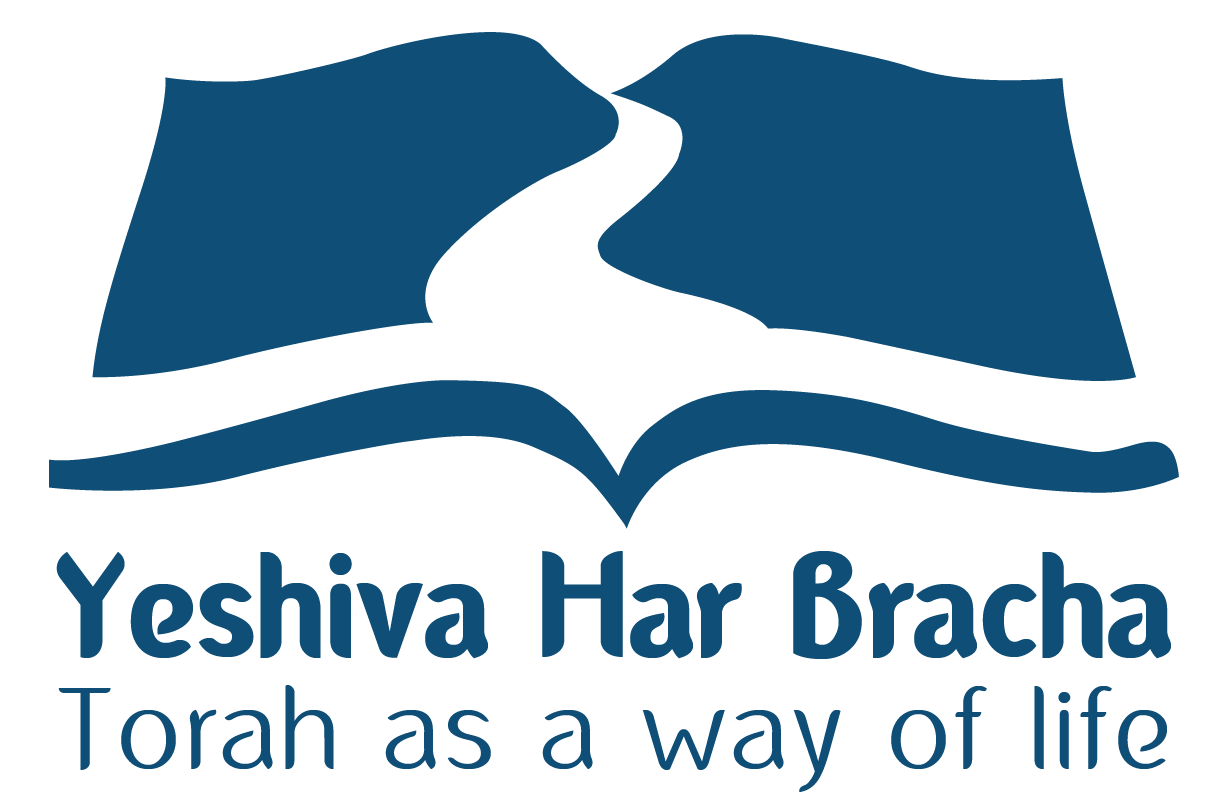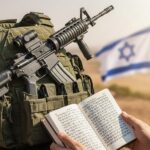By the merit of Ilan Cohen’s heroic self-sacrifice, may his memory be a blessing, we will defeat our enemies * The mitzvah of settling the Land is a general commandment that obligates the entire Jewish people to inherit the Land * In addition to the general commandment, there is a mitzvah upon every Jew to live in the Land of Israel * Only through fulfilling the Torah and mitzvot in the Land is God’s name revealed in the world * The obligation to make Aliyah demands that people considered very successful forgo their success, and start rebuilding themselves anew
The Soldier Ilan Cohen, May His Memory Be a Blessing
On Friday, the 9th of Iyar 5784, the soldier Ilan Moshe Cohen, may his memory be a blessing, was brought to burial on Mount Herzl. Ilan grew up in Buenos Aires, Argentina, received a religious-Haredi education, and at the age of eighteen, recognizing the value of the mitzvah of settling the Land, decided to make Aliyah to Israel, and later, recognizing the value of the mitzvah of serving in the army, decided to join the Har Bracha Hesder Yeshiva. On Wednesday, he fell defending the people and the Land, and his funeral was postponed until his parents arrived in Israel. At three o’clock, immediately after they arrived, the funeral began on Mount Herzl. Being a lone soldier, his friends and Aliyah emissaries asked the public to attend the funeral. Thousands of Jerusalem residents came on the eve of the holy Shabbat to bestow honor upon Ilan, may his memory be a blessing, and to participate in his funeral. Together with them were Ministers Ofir Sofer, Orit Struck and Idit Silman, and Members of Knesset Amit Halevi and Eli Avidar. These are the words I spoke in eulogizing him on Mount Herzl.
The Eulogy
Dear and holy Ilan Cohen. We had hoped that by the merit of the great mitzvah you fulfilled in your Aliyah to the Land, you would merit long life, establish a large family, raise sons and daughters in our cherished ancestral Land, bring joy to your family in Argentina – and now they have been urgently summoned to board a plane to attend your funeral.
In Buenos Aires, you had everything – family, a comfortable life, fluency in the language – yet you chose to leave it all behind and make Aliyah, to bestow grace upon the soil of our holy Land, and to fulfill with your body, the mitzvah that our Sages said is equivalent to all the mitzvot – the mitzvah of settling the Land. You knew that the enemy threatens Israel, and you decided to enlist in the army to defend your brethren, in the Paratroopers Brigade. You had ten free days before your enlistment, and you utilized even those to volunteer at a farm engaged in settling the Land, rising at five in the morning to go out to shepherd sheep, until close to your enlistment date.
As a new, lone immigrant, your army service was more difficult for you, but you did not give up, and even when it was difficult for you during marches, you quietly, and humbly, continued carrying your load. To your friends, the select individuals who made Aliyah with you from Argentina and enlisted in combat units, you said: “It is better to talk and complain less, and to act and help more.” Thus, despite the difficulties, you became an outstanding soldier. You absorbed your foundation in your family and the warm Jewish community in Argentina, which has love for the Torah and tradition, and a warm connection to the people, and the Land. And you continued walking this path with self-sacrifice until the end.
Our Sages taught us that any Jew who is killed for being a Jew is called kadosh (holy), and is assured a place in the World to Come. In his death for being a Jew, he shed his private garments and cloaked himself in the holiness of Israel. How much more so one who chose to risk his life defending the people and the Land, and saving many lives. And our Sages said: “Whoever saves a single Jewish life, it is as if he has sustained an entire world” (Sanhedrin 4:5), how much more so, one who fought to save the entire people.
There are those who claim that the tribe of Levi is exempt from the mitzvah of military service. But Ilan, the Kohen, followed in the path of the great Kohanim – Pinchas son of Elazar the Kohen who fought against Midian, and Matityahu the Kohen and his Hasmonean sons who fought against the Greeks, for in truth, the Kohanim always volunteered to go at the head of the soldiers to fight Israel’s wars.
For two thousand years, Jews were killed in exile for the sanctification of God’s name; they lived in humiliation, and died in agony, yet they consented to suffer it all out of faith that a day would come when the words of the Torah would be fulfilled in Israel, and the Jewish people would return to their Land, to bring God’s word and blessing to the world.
The days they dreamed of are being realized through the merit of all the immigrants and warriors who sacrificed their lives for the settlement of the Land and its defense, from the Hasidim of the Baal Shem Tov and the disciples of the Vilna Gaon, who made Aliyah to the Land two hundred years ago, until the dear youth making Aliyah today. Through the merit of all the holy martyrs who sacrificed their lives in settlement and defense, the words of the Torah are being fulfilled in us: “And the Lord your God will return your captives and have mercy upon you, and He will return and gather you from among all the peoples to which the Lord your God has scattered you… And the Lord your God will bring you to the Land which your forefathers possessed, and you will possess it, and He will do you good and multiply you more than your forefathers” (Deuteronomy 30:3).
In exile, we were not privileged to bury our dead with honor. They remained scattered along the sides of all the communities to which they wandered, and when they were forced to flee, they left them among the wicked who banished them, consoling themselves that in gilgul mechilot (rolling through underground passages), they would return to the Land. Today, we are privileged to bury Ilan Cohen with a state ceremony in Jerusalem the Holy City, on Mount Herzl, in the presence of ministers and members of Knesset. In this world, Ilan Cohen and all the holy ones buried on this mountain appear to be dead. But in the World of Truth, they are very much alive, and their lives are exceedingly long, for everything built among the people and in the Land, draws from their strength. All the weddings and births are through their strength; all the Torah and divine service, through their strength.
By the merit of Ilan’s self-sacrifice, we will defeat our enemies. By the merit of his self-sacrifice, the deep and warm connection of the Jewish community in Argentina to the Land of Israel will be strengthened. Thanks to him, many more will make Aliyah to settle the Land and fulfill his aspiration, and thanks to him, all his friends and acquaintances will establish large, blessed families in our cherished ancestral Land. And through this, the bereaved, beloved parents will merit to be consoled with the consolation of Zion and Jerusalem, as the words of the prophet Jeremiah: “They shall come and shout on the heights of Zion, radiant over God’s bounty— over new grain and wine and oil, and over sheep and cattle. They shall fare like a watered garden, they shall never languish again. Thus says the Lord: A voice is heard on high, wailing, bitter weeping, Rachel weeps for her children, she refuses to be consoled for her children, for they are gone. Thus said the Lord: Restrain your voice from weeping, and your eyes from shedding tears; for there is a reward for your labor, says the Lord, and they shall return from the enemy’s land. There is hope for your future, says the Lord, and your children shall return to their borders” (Jeremiah 31:12-16).
The Mitzvah of Settling the Land
To elevate his soul, I will summarize an answer I wrote on the question of whether there is an obligation upon every Jew in the world to make Aliyah to the Land of Israel (you can find the full answer in the ‘Revivim’ article of Issue 893, in the ‘Besheva’ newspaper, titled “The Obligation to Make Aliyah to the Land”).
A: The mitzvah of settling the Land is a general commandment that obligates the entire Jewish people to inherit the Land, meaning to impose its sovereignty over it, and settle it in the best possible way from all perspectives (Numbers 33:53-54), and as Ramban (Nachmanides) defined the mitzvah: “We were commanded to inherit the Land that the Exalted God gave to our forefathers Abraham, Isaac and Jacob, and not to leave it in the hands of other nations, or desolate” (Hasagot to Sefer Hamitzvot, mitzvah 4).
From the commandment upon the entire Jewish people to settle the Land, a mitzvah is derived that obligates every individual Jew to live in the Land, since the general Jewish people cannot fulfill the mitzvah of settling the Land unless every individual is a full partner in the obligation of the mitzvah, until the vast majority of Israel actually resides in the Land. And we have likewise learned that according to the Torah, the obligation to fulfill the mitzvot contingent on the Land that are associated with the community, such as challah, tithes and terumot, depends on the majority of the Jewish people residing in its Land (Maimonides, Laws of Terumot 1:1-3, 26; Peninei Halakha: Kashrut 12:10-11).
In addition to the general commandment that the Land be under Israeli sovereignty and the vast majority of Israel reside in it, there is a mitzvah upon every individual Jew to live in the Land of Israel, even at a time when idolatrous gentiles rule the Land (Ketubot 110b; Maimonides, Laws of Kings 5:12; Laws of Married Life 13:20).
A Mitzvah Superior to Regular Mitzvot
There are those who argue that according to Ramban, the mitzvah of settling the Land is binding at all times, but according to Rambam, it was only binding in the past, and therefore Rambam did not count the mitzvah of settling the Land among the 613 mitzvot. However, the truth is that Rambam did not count the mitzvah of settling the Land because it is more important than a regular mitzvah, and as he explained in the introduction to his Sefer Hamitzvot, it is not fitting to count the overarching commandments that encompass the entire Torah (as elaborated in ‘Eim HaBanim Semeichah’, Chapter 3, Paragraph 7-10).
Indeed, the general mitzvah of settling the Land which underlies many other mitzvot, is reflected through numerous mitzvot. In addition to all the mitzvot that are directly contingent on the Land, such as tithes and terumot, the mitzvah of establishing a monarchy depends on the Land of Israel, and its purpose is to establish a regime that will express the sovereignty of the Jewish people over its Land, and organize its life in the best possible way (Deuteronomy 17:14-20; HaEmek Davar of the Netziv, ibid.; Mishpat Kohen 144). Likewise, the mitzvah of building the Holy Temple and all the mitzvot associated with the Temple. The mitzvah of settling the Land also underpins the entire system of mitzvot related to the judicial system, the observance of festivals, and the roles of the Kohanim and Leviim.
Moreover, the entire Torah and its mitzvot were intended to be fulfilled in the Land, for it is only through their observance in the Land that God’s name is revealed in the world, to the extent that our Sages said that the observance of mitzvot outside the Land is meant for us to remember to fulfill them when we return to the Land (Jerusalem Talmud Shevi’it 6:1; Babylonian Talmud Kiddushin 37a; Sifrei Ekev 43-44).
The Claim of the Igrot Moshe
There are those who argue that although it is a great mitzvah to live in the Land, there is no obligation to make Aliyah to it (Igrot Moshe, Even HaEzer 1:102). However, as we have learned from our Sages, it is in fact an obligatory mitzvah, and therefore, for example, our Sages ruled that when one spouse wishes to make Aliyah to the Land, the other is obligated to accede to his/her request, and if not, this constitutes grounds for divorce (Maimonides, Laws of Married Life 13:20; Shulchan Arukh, Even HaEzer 75:4). Admittedly, during the years of exile, the rabbis did not encourage Aliyah to the Land, but this was because generally, making Aliyah and living in the Land were fraught with grave dangers, to the point that for those living in exile, it was considered a case of coercion that exempted them from fulfilling the mitzvah. But it did not occur to them that a time would come when Jews would be able to sustain themselves in the Land and there would be those who would argue that it is not an obligatory mitzvah. And even in those difficult days, Rabbi Yehuda HaLevi (Kuzari 2:24) wrote that one had to make a far greater effort to make Aliyah to the Land, and without doing so, our prayers were “like the speech of a parrot, and the chirping of a starling.”
Would I Have Withstood the Test?
I must add: This is the halakha, but unfortunately, I do not know if I would be capable of withstanding the test of making Aliyah to the Land if I had been born in exile. For even when it is possible to live in the Land, it is extremely difficult to leave a familiar place of residence where one knows how to best express oneself, how to educate children, and how to earn a livelihood, and move to a place where one would have to learn the language, and all the different ways of life. The obligation of making Aliyah to the Land demands that those considered very successful forgo their success, and start rebuilding themselves anew. Therefore, I hold in such high regard the immigrants from the United States and Western countries, and especially the young immigrants who enlist in the army and sacrifice their lives, together with all the heroic soldiers, for the salvation of the people and the Land.
This article appears in the ‘Besheva’ newspaper and was translated from Hebrew.








